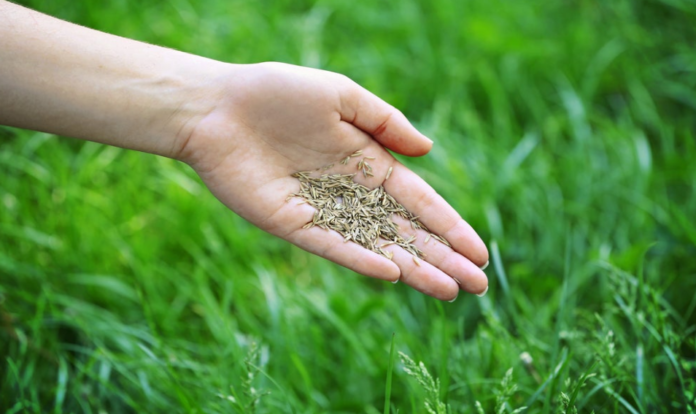Bermuda grass sod has long been a favorite choice for homeowners, landscapers, and golf course superintendents. Admired for its resilience, fast growth, and green hue, this grass species promises to transform a barren yard into a lush green carpet. Yet, Bermuda grass sod often finds itself entwined in a series of myths that confuse its admirers. Today, we take on the role of myth busters, separating fact from fiction to shed light on the true nature of Bermuda grass sod.
Myth 1: Bermuda Grass Sod is Invasive
It’s easy to mistake Bermuda grass sod’s rapid growth and robust nature for invasiveness. However, defining it as an invasive species isn’t entirely accurate. Yes, Bermuda grass sod can spread rapidly in optimal conditions. Still, it rarely pushes out other species unless they struggle to survive due to poor soil health or incorrect watering practices. In a balanced ecosystem, Bermuda grass sod coexists peacefully with other plants. Therefore, as long as you maintain a regular mowing and care schedule, Bermuda grass won’t turn your garden into a monoculture.
Myth 2: It’s Only Suitable for Warm Climates
Although Bermuda grass sod thrives in warm, tropical climates, this doesn’t mean it can’t survive in cooler areas. The truth is Bermuda grass enters a dormant state during colder months, changing color from green to brown, but springs back to life once the temperature rises. So, if you live in a region with chilly winters but want a vibrant lawn in the warmer months, Bermuda grass can still be an excellent choice.
Myth 3: Bermuda Grass Sod Requires Excessive Watering
Bermuda grass sod is often thought to be a water guzzler. The reality, however, is that it is a drought-tolerant grass type. Once established, Bermuda grass requires less frequent watering than many other grass species. What it truly craves is sunlight. Providing ample sunlight and watering it deeply but infrequently will keep your Bermuda grass sod healthy and green.
Myth 4: Bermuda Grass Sod is Not Pet-Friendly
Another prevalent myth is that Bermuda grass sod, zeon zoysia, centipede sod, and empire zoysia harm pets. This piece of fiction has sprung from isolated incidents of pets having allergic reactions. However, Bermuda grass is not inherently toxic or harmful to pets. Like humans, pets can have allergies to numerous substances, and unfortunately, Bermuda grass might be one of them for some pets. However, such cases are exceptions rather than the rule.
Myth 5: It’s Difficult to Maintain Bermuda Grass Sod
Many believe that maintaining Bermuda grass sod is a chore. On the contrary, Bermuda grass sod is one of the hardiest grass species. It can endure foot traffic, recover quickly from damage, and is more forgiving of infrequent lawn care than other species. Basic care practices like mowing, occasional watering, and feeding nutrients will keep your Bermuda grass sod lush and vibrant.
Myth 6: Bermuda Grass Sod Attracts Lawn Pests
All grasses can potentially attract lawn pests; Bermuda grass sod is no exception. Yet, this doesn’t mean Bermuda grass is a magnet for pests. Most pests are attracted to stressed and poorly maintained lawns. Keeping your Bermuda grass sod healthy and well-nourished will help prevent the onset of pest invasions.
Conclusion
In conclusion, Bermuda grass sod is a resilient, low-maintenance, and versatile grass type suitable for various climates and landscapes. Misconceptions have marred its reputation, but once these myths are busted, it’s clear that Bermuda grass sod from
Atlanta SOD Farms
has much to offer. Like any plant, it requires care and attention, but in return, it provides a robust and eye-catching lawn that meets daily life’s demands. It’s time to separate the wheat from the chaff, or in this case, the grass from the myths, and give Bermuda grass sod the appreciation it rightfully deserves.
FAQ
Does Bermuda grass sod attract lawn pests?
All types of grass can attract pests, and Bermuda grass sod is no exception. However, pests are less likely to invade a healthy, well-nourished lawn. If pests do appear, there are numerous safe and effective treatments available.
Can Bermuda grass sod become invasive?
Bermuda grass sod has a fast growth rate and can spread rapidly under optimal conditions, but this doesn’t mean it is invasive. Regular mowing and proper lawn care practices can easily control its spread.
Is Bermuda grass sod difficult to grow?
Not at all. One of the advantages of Bermuda grass sod is its ease of establishment. It grows quickly and vigorously given the right conditions – plenty of sunlight, good drainage, and a soil pH between 5.8 and 7.0.
How can I prevent Bermuda grass sod from spreading to unwanted areas?
Regular edging around your lawn and garden beds can help prevent Bermuda grass sod from spreading to unwanted areas. Additionally, laying down a physical barrier, like landscaping fabric or plastic edging, can help keep the grass in check.
Read article more businessfig







